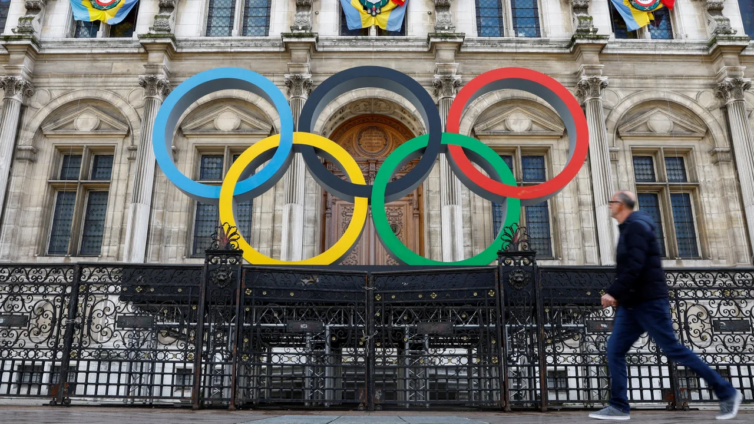The United Nations’ human rights office has criticized the French government for banning French athletes from wearing the hijab at the Paris Olympics next year.
“No one should impose on a woman what she needs to wear, or not wear,” said Maria Hurtado, spokeswoman for the UN High Commissioner for Human Rights, on Tuesday.
“In general, according to the committee on elimination of discrimination against women, any state party of the convention, in this case France, has an obligation to take all the appropriate measures to modify any social or cultural patterns which are based on the idea of inferiority or superiority of either sexes,” Hurtado added.
“Having said that, the discriminatory practices against a group can have harmful consequences. That is why according to international human right standards, restrictions of expressions of religions or beliefs such as attire choices are only acceptable under really specific circumstances that address legitimate concerns for public safety, public order or public health or morals in a necessary and proportionate fashion,” she added.
Hurtado’s comments came after French Sports Minister Amélie Oudéa-Castéra said on Sunday French athletes will not be allowed to wear a hijab at the Paris Olympics next year, arguing in favour of “a strict regime of secularism, applied rigorously in the field of sport.”
“What does that mean? That means a ban on any type of proselytising and the absolute neutrality of the public service,” Oudéa-Castera told state broadcaster France 3.
The ministry’s press office told CNN on Tuesday that the minister “simply reiterated the law,” referring to a court’s decision in June to uphold a ban on wearing the hijab during football games. According to the ruling earlier this year, “the principle of public service neutrality applies to sports federations which are in charge of a public service.
The ministry said that “in accordance” with that ruling, “French teams are subject to the principle of public service neutrality, from the moment they are selected to this end in all national and international competitions.” “Thus, one cannot wear a headscarf (or any other accessory or outfit demonstrating a religious affiliation) when representing France in a national or international sporting competition,” it added.
She added the rules applying to other athletes will be set by each international federation, under the supervision of the International Olympic Committee (IOC).
“There will be heterogeneity between sports,” the French minister added.
Latest Stories
-
NPP flagbearership race: ‘You want to worry me’ – Bawumia tells Bryan Acheampong
9 minutes -
Daniel Twum’s ‘Lifted’ praise session inspires
11 minutes -
2025 national doubles tournament concludes with exciting finals
17 minutes -
Rethinking the Rambo-style attacks on Ghanaians: A vacuum for future political violence
18 minutes -
Arrest, detention, and restriction: Pillars of law and order
26 minutes -
Lawrencia Ama Yeboah shines as 2nd runner-up at Miss Orient Tourism Global
39 minutes -
‘Vincent Atinga deserves Black Stars call-up’ – GoldStars CEO Akwasi Adu
40 minutes -
Bolga pharmacist killing: Pharmaceutical Society demands justice
44 minutes -
The Spirit of Hiplife lives as Ghana’s beat of identity and influence
1 hour -
Queen Titiaka joins President Mahama, Ministry of Environment, to launch “One Child, One Tree” initiative on World Environment Day
1 hour -
Brighton boss Fabian Hurzeler ‘delighted’ with Tariq Lamptey contract extention
1 hour -
Nurses’ strike escalates, disrupting healthcare services nationwide
1 hour -
Top 6 artistes who define Ghanaian music
1 hour -
Beyond the Veil of Religion: Where is the Love We Were Promised?
2 hours -
Asante Gold Bibiani donates 250 desks to Queens Girls’ SHS
2 hours

